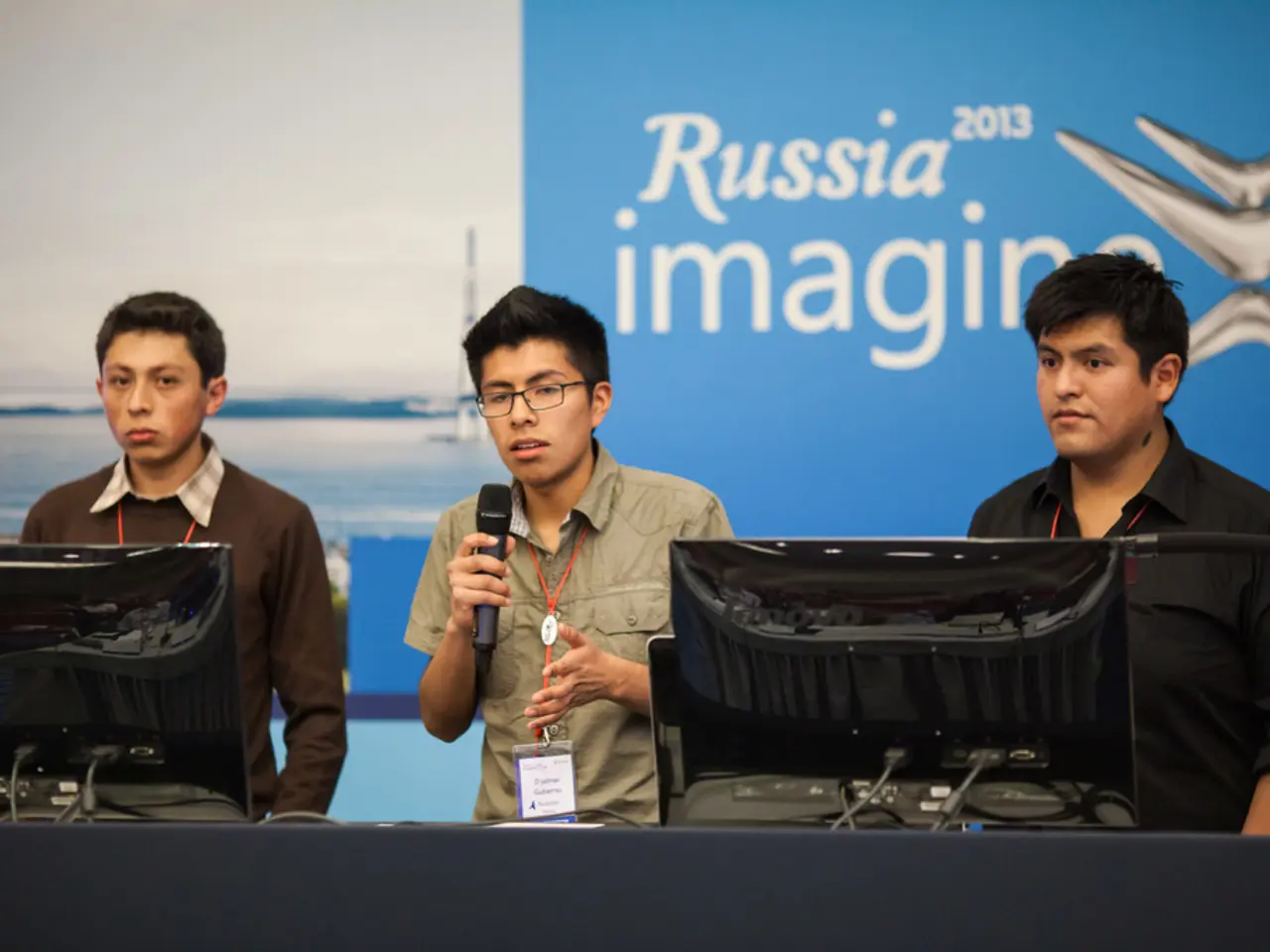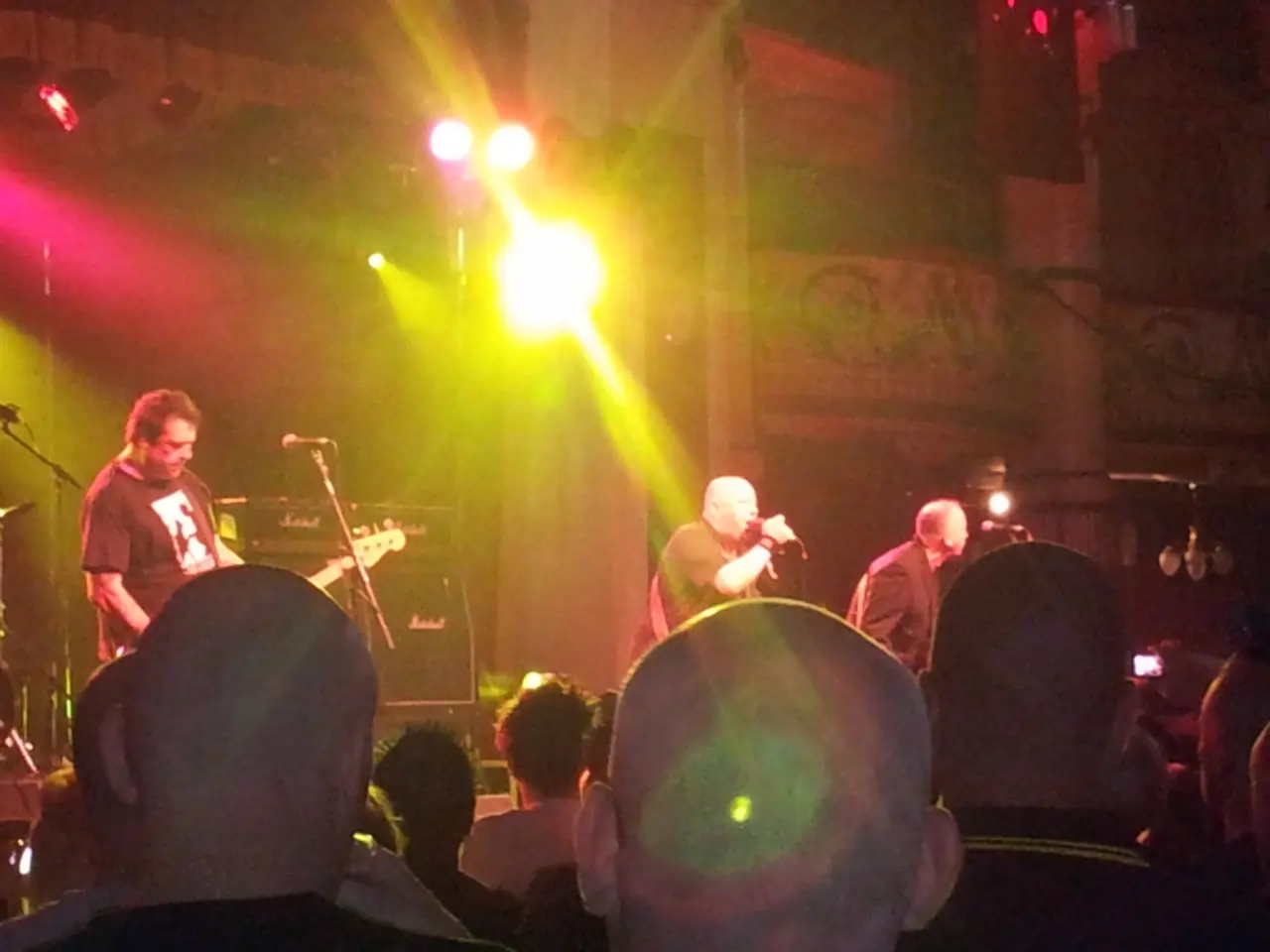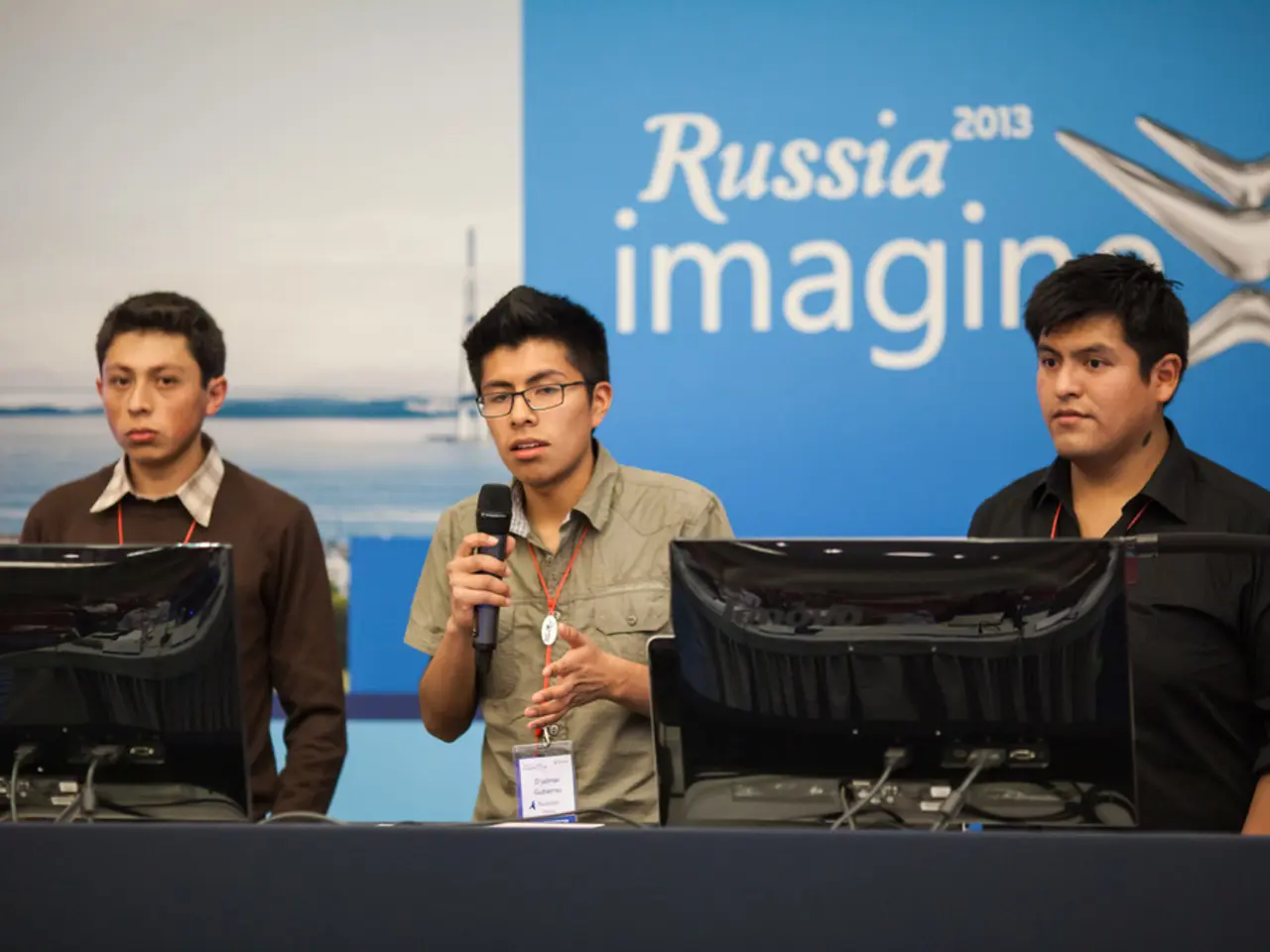Kremlin Interprets Trump's Statement as Indication of Persistent Conflict - Kremlin interprets Trump's announcement as prolonged confrontation
In a move that is likely to escalate tensions between the United States and Russia, President Donald Trump has announced new weapons deliveries for Ukraine, financed by European NATO countries. This decision, coupled with Trump's threat to impose tariffs on Russia's trading partners if no agreement for an end to the war is reached within 50 days, signals a significant challenge to Russia's military operations in Ukraine.
The Ukrainian side interprets such decisions as a sign for the continuation of the war, according to Kremlin spokesman Dmitri Peskov. Meanwhile, Russia does not view these planned American weapons purchases by NATO countries for Ukraine as a signal for peace efforts.
Russia's First Deputy Foreign Minister, Alexander Grushko, stated that the weapons deliveries of NATO countries to Ukraine show the alliance is interested in continuing the fighting. Moscow had repeatedly named an end to weapons deliveries as a prerequisite for a ceasefire.
The current stance of Russia on US President Trump's planned weapons purchase for Ukraine is not explicitly detailed in the recent reports. However, Russia's ongoing military actions in Ukraine, including recent drone and missile attacks, suggest a continued aggressive posture despite international pressure for a ceasefire.
The escalation of tensions between the US and Russia is likely to have far-reaching consequences. The threat of tariffs, which could reach levels described as "about 100%" by Trump, indicates a readiness to impose significant economic penalties on Russia. This could further strain US-Russia relations by affecting trade and deepening mutual distrust.
The involvement of NATO in funding the weapons package for Ukraine suggests a unified Western stance against Russia's actions. This could limit Russia's diplomatic options and further isolate it internationally.
The 50-day deadline for a ceasefire sets a tight timeline for Russia to reconsider its military strategy in Ukraine. If a ceasefire is not achieved, the imposition of tariffs could lead to a significant deterioration in US-Russia relations.
Peskov has said he will not rush ahead and wait for Putin's possible assessments, suggesting that Russia may take a more measured response to Trump's announcements. However, the overall context implies a worsening of US-Russia relations due to increased military support for Ukraine and the economic threats levied against Russia.
The Commission might be required to propose a regulation on the implementation of the European Union's energy policy, given the escalating tensions between the United States and Russia, as general news reports suggest that war-and-conflicts, particularly Russia's military operations in Ukraine, are intertwined with politics and international relations.
The ongoing military actions of Russia in Ukraine, coupled with the plans of NATO countries to deliver weapons to Ukraine, indicate a continued standoff in the region, thereby making the prospect of peace negotiations challenging and fragile.







